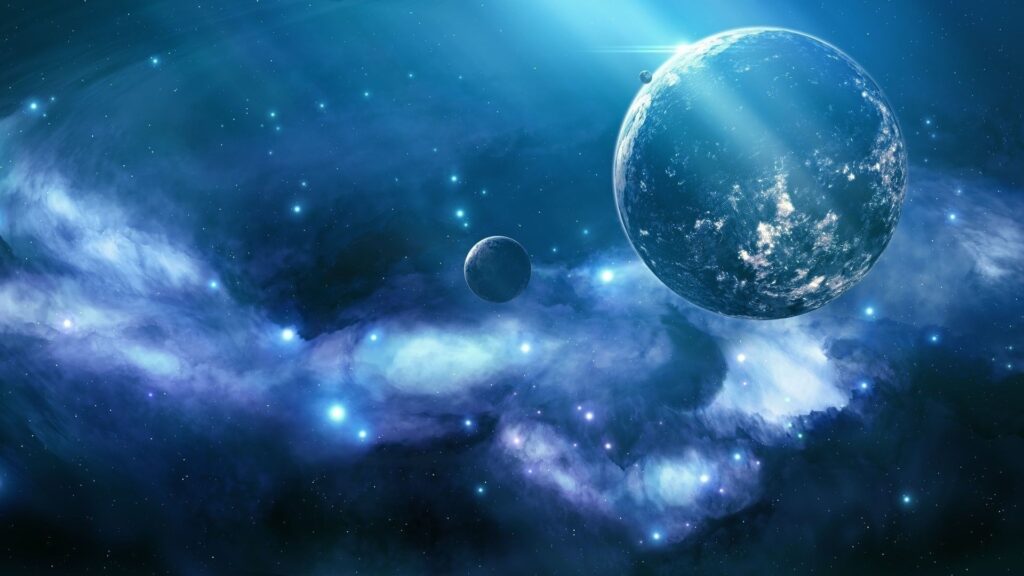–by Iskra Dolina
–Reading Time – 15 min Approx
2020 will be remembered forever: life has changed; activities and growth have slowed down, the planet ‘took time off.’
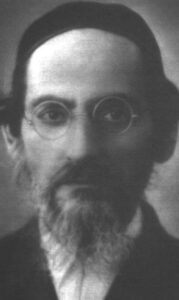
Nowadays, we pay more attention to our health; due to stress, we react more violently to injustice.
The world seems to have come to a standstill not knowing what to do next.
It becomes necessary to understand what the world is in its essence. And to choose the right path.
Some time ago, I received a gift of fate—got to know my colleague, an Israeli lawyer and writer Baal Ha-Sulam (1886—1954).
His article “Peace in the World” served as a panoramic lens, a GPS navigator, and a guiding star at the same time.
Enabled me to see reality and our way in it from a different angle.
If you know where to go, you will surely get there, won’t you?
Step 1. Accept that we don’t see the world as it is
We look at the world as spectators and judge it based on our personal experience and available information.
We believe the Earth is flat, but it’s a ball. The sun moves across the sky but in fact, it’s we who rotate around it.
Every living being sees the world in its own way, and through the eyes of a dog, it looks completely different than it does for a dolphin.
And if we talk, for example, to three people about the surrounding reality? All of them will tell dissimilar things!
Baal Ha-Sulam wrote about it in his “Preface to the Book of Zohar”: “Take our sense of sight, for example: we see a wide world before us, wondrously filled. But in fact, we see all that only in our own interior.”
And that’s the way it is: we cannot objectively assess the infinite reality. Our experience and knowledge are fragmentary—we have to admit it.
Step 2. Accept that we are part of this world
Let’s think about what Nature means to us.
 A place of rest? A source of minerals? A lab or, maybe, a test site?
A place of rest? A source of minerals? A lab or, maybe, a test site?
Many of us have the belief that we can bend it in our will: conquer and subdue. In this case, man is the hunter and Nature—the prey.
But even if you consider yourself a responsible user of Nature, in the very depth of your heart, there is a conviction: “The world must serve me—nourish, provide necessary conditions for life, development, and safety. Because I’m so . . . special.”
Nature is an integral and perfect system, and you and I are part of this indivisible whole.
If a cell of our body begins to function as described above, it becomes . . . cancerous. The cell that lives exclusively for itself.
Modern science confirms that the fate of mankind is determined by the interdependence of Nature, society, and man.
Great thinkers of the past say the same thing:
“I was not to doubt that all Being, Nature itself, constituted a unitary system from the simplest inorganic element to Life at its liveliest . . . Our human brain, our flesh and bones, these were mosaic made up of the same elementary particles as stars and star dust and the dark clouds hanging in the frigid wastes of interstellar space.”
(Thomas Mann, writer, master of intellectual prose of the first half of the XXth century).
If we ignore the fact that we are part of Nature, we will ruin both ourselves
and it.
Step 3. Understand that the world is governed by one law
Nature is a huge ‘factory’ where conditions needed for life on our planet are maintained through cooperation and well-coordinated work.
For example, a forest: the community of plants, animals, and microorganisms in which everything is interconnected. By absorbing carbon dioxide, water, solar energy, the forest contributes to the ‘common cause’: it serves as the natural ‘conditioner’ for our planet, plays a key role in saving it from climate change, in preserving water resources, people’s health and life.
In turn, the substance and energy turnover creates conditions for the life of a forest.
Many tiny elements perform their task and work as part of a single whole.
 Together, they make up a sustainable, balanced ecosystem able to exist and evolve over millions of years.
Together, they make up a sustainable, balanced ecosystem able to exist and evolve over millions of years.
Our Universe is also an integrated system that, as they say, is ‘all-inclusive.’
Amazing and harmonious, it emerged from the Big Bang and is developing to this day.
Both small and large systems abide by the law of gradual development, from the stage of inception to the stage of completion of growth.
This is the most important and enigmatic law of Nature.
In the ancient Book of Zohar, it’s written:
“Every blade of grass has its angel that bends over it and whispers, ‘Grow, grow.”
We, human beings, also abide by the universal law of evolution, whether we like it or not.
If we accept and rely on this law, we go through the process quickly and easily. If not, Nature will anyway drive us to the desired end state.
And it has plenty of methods to achieve it.
Step 4. Admit that basic ethical concepts are not universal
The fundamental law of Nature is a very abstract concept for us. And to regulate the life
in society, we rely on ethical principles of truth, justice, mercy, and peace.
In his article “Peace in the World,” Baal Ha-Sulam shows us that society cannot be built on these principles.
Truth means “You get what you earned.”
The problem is that we are not alike. We all meet this world differently.
Lazy and weak. Purposeful and hardworking. How can we make the same demands to all? The amount of work, efforts . . .
If we all got at birth equal parameters like robots—it would be then quite another matter. Everything is simple.
The concepts of peace and justice contradict each other on the whole.
For peace to reign, we must agree that the intelligent and energetic will be wealthier than the weak and incapable.
Is it possible?
If we take justice as the basis, we will need to divide material assets between all.
Hand over to the impractical and lazy a substantial share of them.
That’s when the initiative and strong will have no peace . . .
It doesn’t work this way.
We need another basic concept that would be acceptable to all.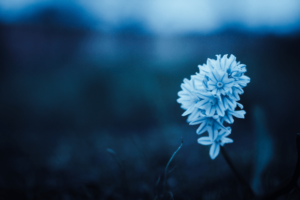
Step 5. Discover that everyone is unique. The only one
Each of us possesses unique qualities.
It’s a gift to man from Nature to be contributed to the common ‘moneybox.’
For the good of society.
But we use this gift otherwise: “I’m special, so the whole world has to serve me.”
Benefiting from our uniqueness only for our own sake, we act all the time with an egoistic intention, make erroneous choices.
Start to pursue money, social status, or something else . . .
We fight against the world for our uniqueness.
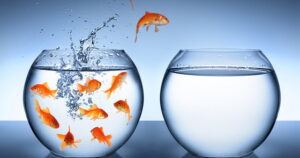 And what is the right way?
And what is the right way?
A shoemaker manufactures comfortable and high-quality shoes for people and society creates all the necessary conditions for him to do it.
A baker produces delicious and healthy bread—and it’s very appreciated and important.
And in this way—everyone for everyone, all for all.
A person spends the appropriate amount of time doing the things he or she loves and in spare time, communicates with others, learns new things, coaches kids.
In uniqueness, we are all equal.
Nature gave us this quality, and our task is to reveal it, to cultivate it, to mutually respect it in each other.
Step 6. Agree that the “everyone for all” principle is the foundation of a perfect society
How, then, does Nature achieve this amazing balance, harmony, and mutual coordination of very different elements?
Cells, plants, animals, communities of living organisms . . . they take for themselves just as much as they need. And they give as much.
This is the foundation based on which the equilibrium in Nature is maintained.
“Everyone for all”, is the only right state of a healthy society.
And also, it is the main principle of a person’s upbringing.
But you, my reader, would object to me that nothing at all depends on you.
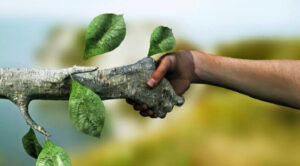 I respond with confidence:
I respond with confidence:
“Every person has the work allocated to him or her. And it must be done.”
You don’t have to start a revolution or go into politics.
Let’s do what is needed in our current roles.
First—to the benefit of our nearest and dearest. Then—for the good of all mankind.
Let’s create a healthy ecosystem within the family, with the loved ones, with the people around.
We can begin to live like this: “everyone for everyone.”
All these categories used before (truth, mercy, peace, and justice) were needed to understand the necessity to open our hearts and see the uniqueness in people.
And we will be then able to apply this new universal principle.
That’s how Nature teaches us to behave properly!
Any change begins with one person.
When we act as an indispensable part of society, Nature guides and supports us.
And the world rejoices and ‘shines’.
That’s how it works.
Baal Ha-Sulam writes about it in his article:“ First, everyone must thoroughly understand and explain to his surroundings that the well-being of society, which is the well-being of the state and the well-being of the world, are completely interdependent . . . Thus, peace of the individual is a direct cause for peace of the state.”
–by Iskra Dolina


